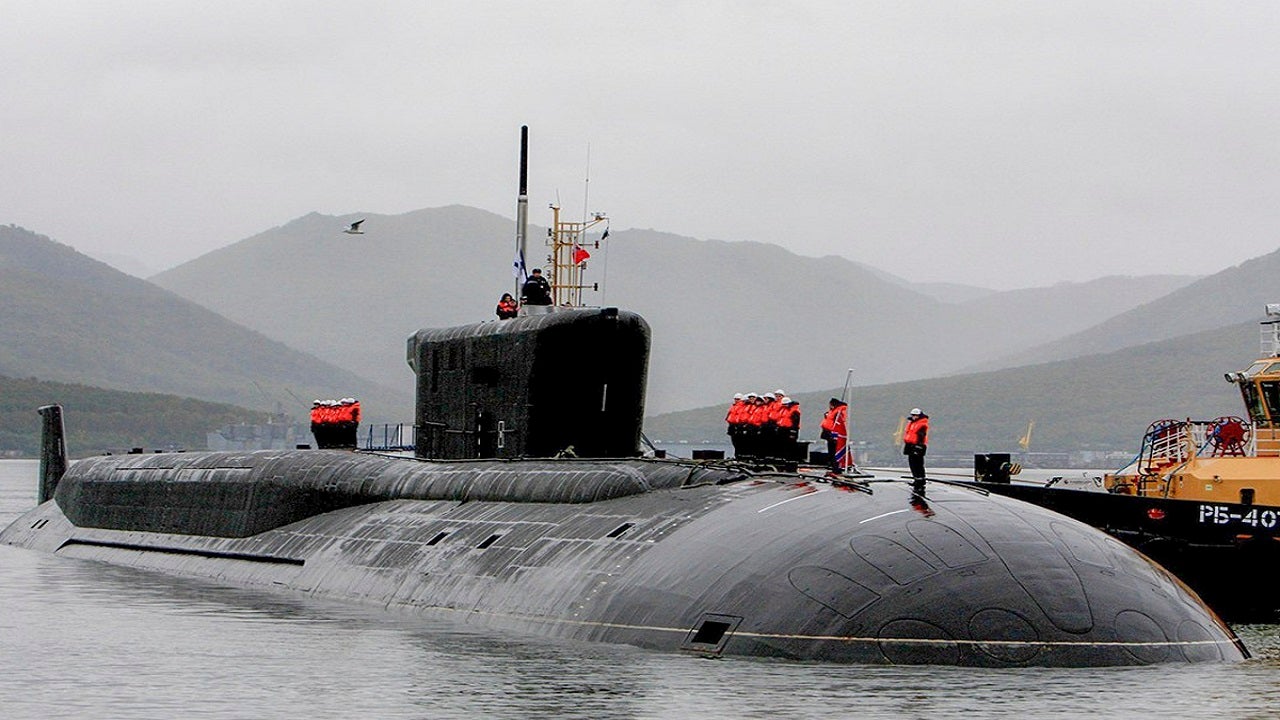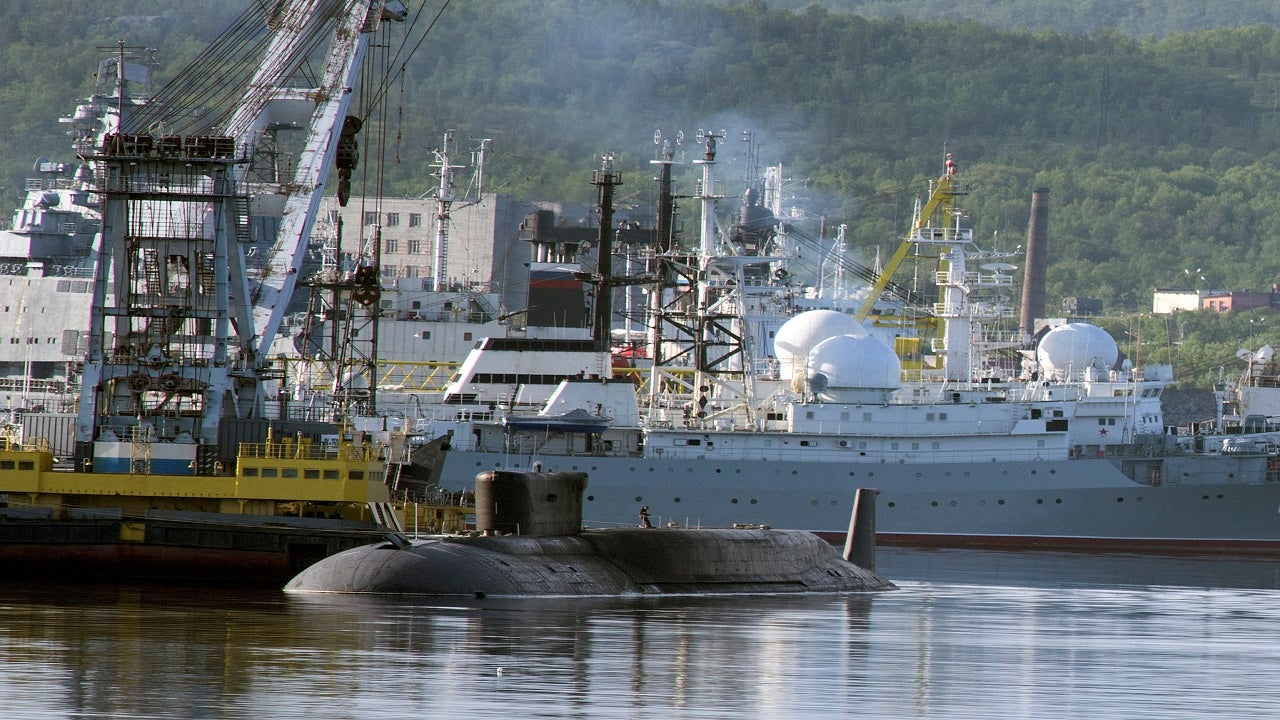The Borei Class is a Russian fourth-generation nuclear-powered missile submarine. It is intended to eventually replace the ageing Delta III and Typhoon Class submarines and become an important deterrent for the Russian Navy. It is the first class of submarines developed by Russia since the Soviet era.
Designated Project 935, it began in 1996 to manufacture the first unit of the Borei Class submarine. The project name was changed to Project 955 and the submarine was redesigned to accommodate the new submarine-launched ballistic missile (SLBM) Bulava (SS-NX-30) in place of the abandoned R-39UTTH Bark missile.
Currently, Yury Dolgoruky, Alexander Nevsky, Vladimir Monomakh, and Knyaz Vladimir are the four submarines commissioned under this project. These vessels were designed by Rubin Marine Equipment Design Bureau and built by Northern Machine Building Enterprise (Sevmash shipyard).
Development of Borei Class submarines
The first in the class of the submarines is the Yury Dolgoruky vessel, which was built at a total cost of $713m, including a research and development expenditure of $280m.
The first three submarines in the class were built under the Project 955 programme and the following five vessels, including the Knyaz Vladimir, were ordered under the Project 955A (Borei-A), the higher version of Project 955.
The Project 955A programme involves the construction of new submarines with various improvements and different hull shapes.
The first Borei-A Class ship, Knyaz Vladimir, was laid down in July 2012. The submarine began the first stage of trials by November 2018 and entered service in June 2020.
Currently, four submarines of the Borei-A project, Knyaz Oleg, Generalissimus Suvorov, Emperor Alexander III, and Knyaz Pozharskiy, are at various stages of construction.
Construction of Borei Class submarines
The first submarine, Yury Dolgoruky, was laid down in November 1996. It was launched in February 2008 and began the sea trials in June 2009. The ship was formally inducted into the Russian Navy in January 2013.
Alexander Nevsky (K-550), the second submarine, was laid down in March 2004 and launched in December 2010. The ship was commissioned in December 2013, after completing a series of sea trials that started in October 2011.
Vladimir Monomakh is the third Borei Class submarine. It was laid down in March 2006 and launched in December 2012. The submarine was commissioned in December 2014.
Bulava SLBM missiles on the Russian subs
The Bulava SLBM (designated RSM-56 in the START treaty), which is based on the Topol M design, is being fitted onto the Borei Class submarines.
These missiles were developed by the Moscow Institute of Thermal Technology and were launched on the Project 955 platform.
The missile is 12.1m long and has a diameter of 2.1m, including the launch container. It weighs a total of 36.8 metric tonnes and can carry six to ten re-entry vehicles with a yield of 100k-150k each.
The Borei Class submarines have lower displacement levels than the Typhoon Class, which can carry a similar number of missiles. Yury Dolgoruky could carry 16 of these missiles, while the improved versions of the Borei Class submarines may carry 20 of them.
The submarine also carries six of the SS-N-15 missiles. Each SS-N-15 is a 533mm calibre anti-ship missile that has a range of 45km and is capable of being fitted with a 20k warhead or a type 40 torpedo.
Vessel propulsion systems
The submarine is powered by an OK-650 nuclear reactor, AEU steam turbine, a shaft, and a propeller. The Borei Class submarines are the first in Russia to run on the pump jet propulsion system.





